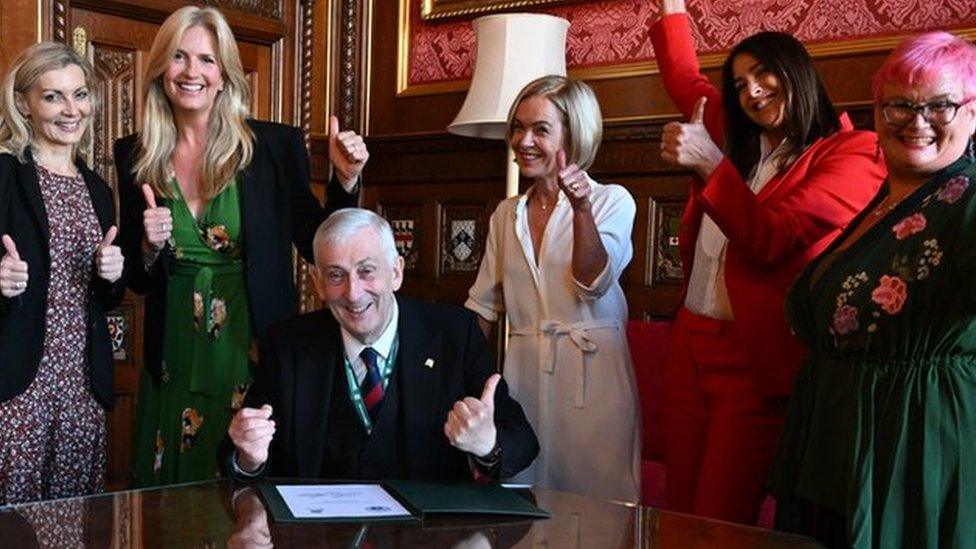Menopause passport introduced by NHS trust boosting wellbeing
- Published
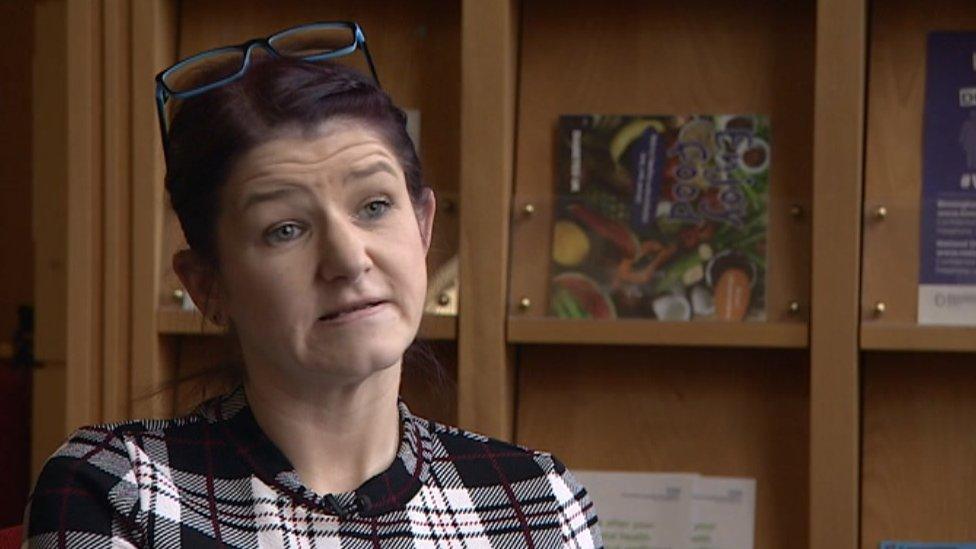
Corinne Baylis has been appointed as a menopause champion for the trust
Staff taking part in a "menopause passport" scheme say it has increased confidence and had an impact on emotional wellbeing.
The initiative at University Hospitals Birmingham is thought to be the first of its kind in the NHS.
The personalised passport allows women to indicate when they are in need of more support at work.
Nurse Wendy Madden, whose menopause symptoms led to her taking 11 weeks off work, came up with the idea.
Adjustments could include taking more breaks, working different shifts or sitting closer to the toilets and air conditioning.
"What we're doing is individualising that person's individual menopause journey and what support they need at different stages of their journey," said Ms Madden.
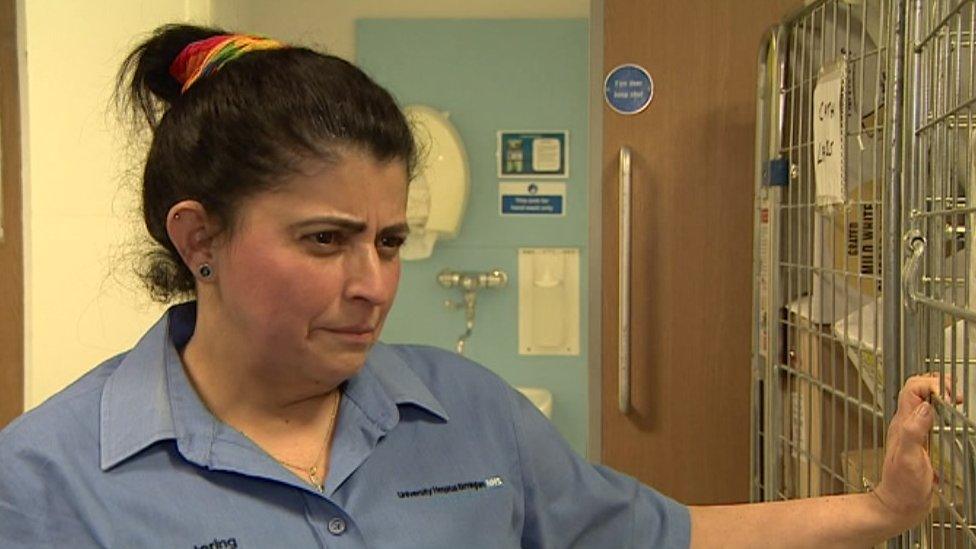
Hospital porter Gina Ross now attends a regular support group after experiencing symptoms
Gina Ross, a hospital porter, said she had experienced hot flushes, sleepless nights and bouts of depression for the past year.
She is also one of an estimated three million women who experience menopause while working.
"In the beginning I didn't want to come to work," she said.
She also described feelings of embarrassment after suffering memory loss.
"I thought: 'Oh my god, what's happening to me'?"
However, she added attending a support group had helped.
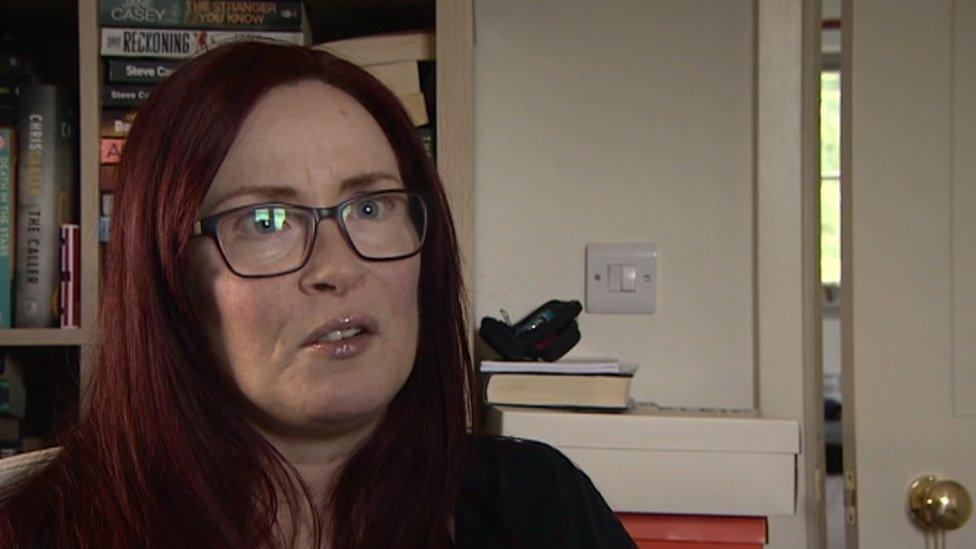
Debs Wallbank trained as a menopause coach after experiencing undiagnosed symptoms
University Hospitals Birmingham is one of the biggest hospital trusts in England and employs more than 18,000 women, with about 5,000 of them aged 50 or over.
Alongside the passport, a group of menopause champions have been appointed across the trust, acting as points of contact for people who want to better understand the condition.
One, Corrine Baylis, said her interventions had had an impact on the staff's emotional wellbeing at work.
Last month ministers rejected a proposal from a committee of MPs to introduce "menopause leave" pilots in England, arguing it could be "counterproductive". However, the government said it had an "ambitious" plan to improve support.
A group of menopause champions have been assigned across the West Midlands NHS trust as points of contact for any staff members who are struggling or keen to learn more.
Debs Wallbank, from Much Wenlock in Shropshire, became a menopause coach after experiencing six years of undiagnosed symptoms, including anxiety, leading her to leave several jobs.
"It's not about labelling women," she said, "it's about raising the awareness, so that people are more compassionate and can make small adjustments that don't have to even cost any money."

Follow BBC West Midlands on Facebook, external, Twitter, external and Instagram, external. Send your story ideas to: newsonline.westmidlands@bbc.co.uk, external
- Published24 January 2023

- Published14 November 2022
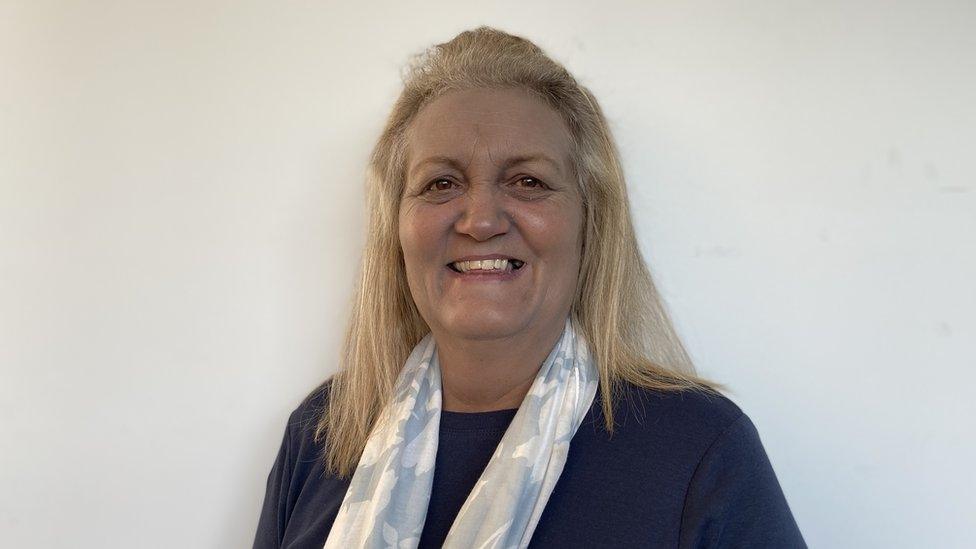
- Published13 June 2022
